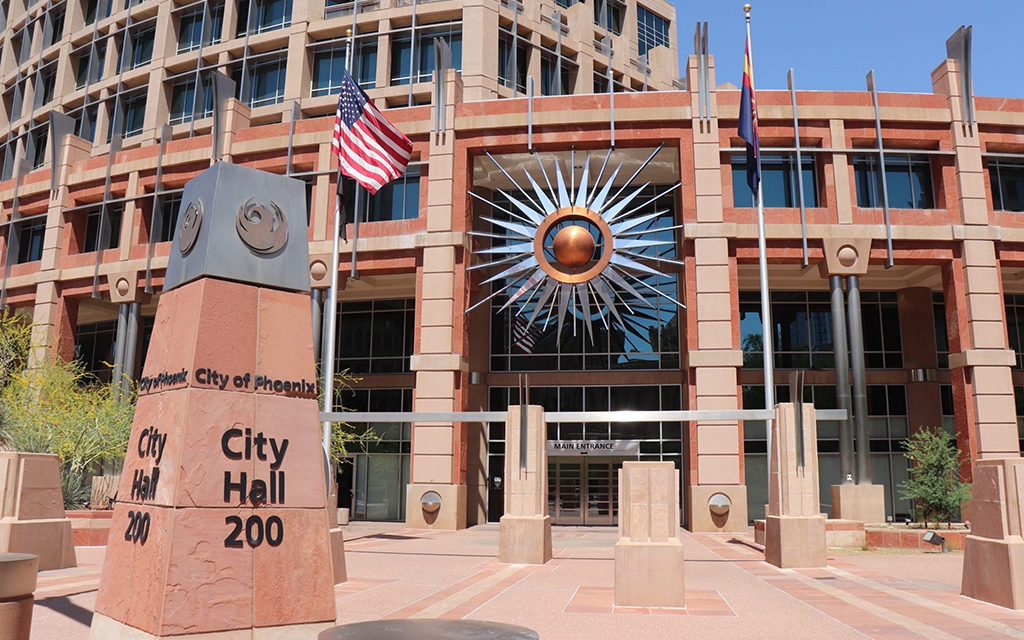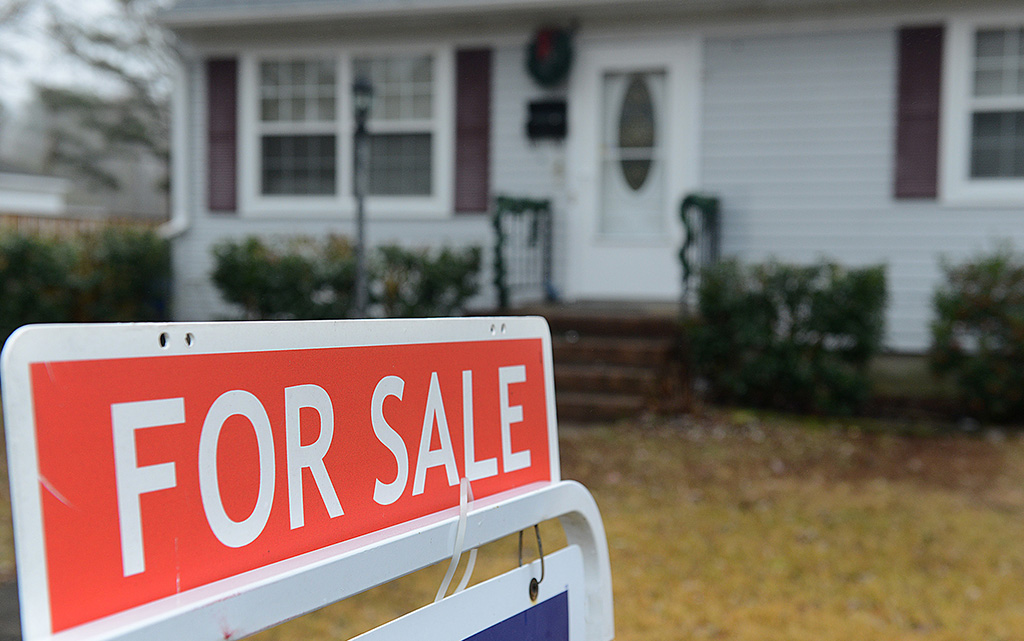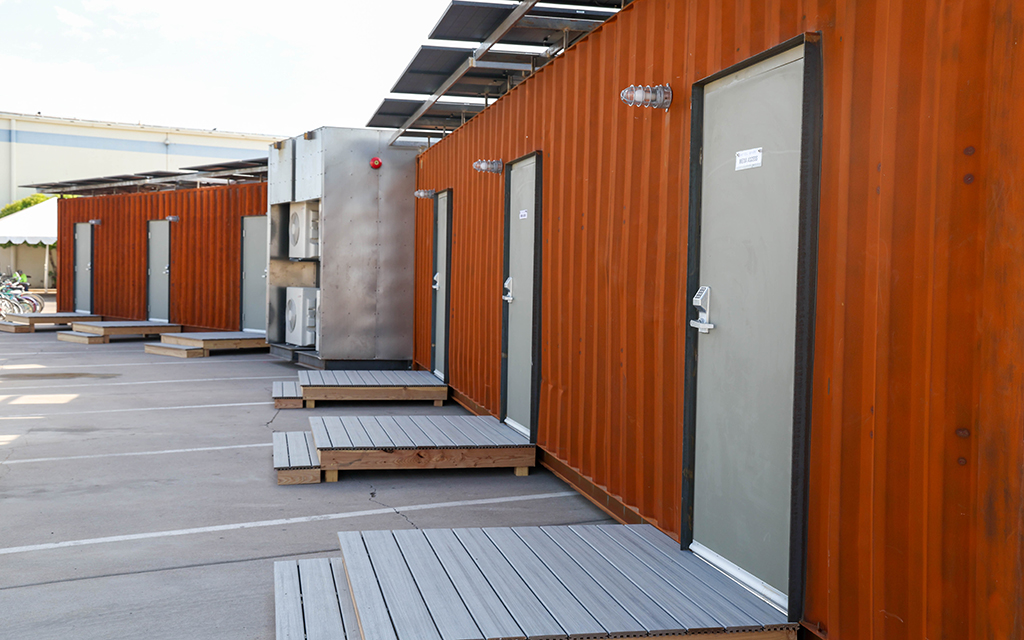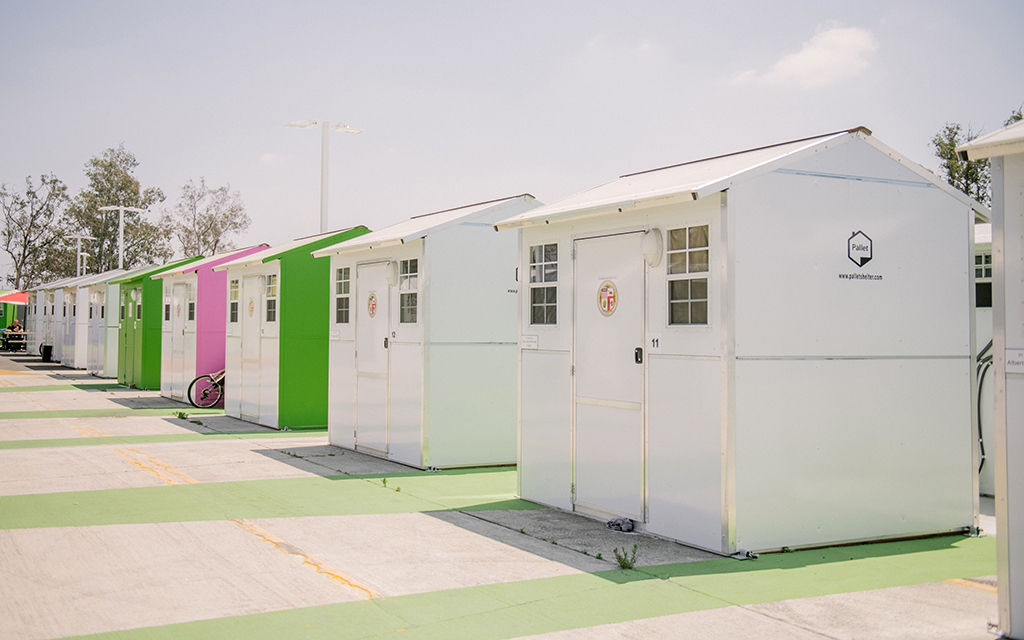
The Phoenix City Council this week unanimously approved a new permitting process for short-term rentals that will require owners to have a permit for their rental property, notify neighbors and carry liability insurance, among other restrictions. It came two weeks after the council voted to legalize backyard casitas. (File photo by Emma Peterson/Howard Center for Investigative Journalism)
PHOENIX – The Phoenix City Council unanimously passed regulations on short-term rentals Wednesday following a Sept. 6 vote that legalized backyard casitas.
The city code change will regulate short-term rentals through a permitting process that would be required of property owners who want to rent out. The city would have to issue or deny a permit within seven days of application, for all short-term vacation rentals in Phoenix.
Some Phoenix residents expressed opposition to the proliferation of short-term rentals, like Airbnb and Vrbo, in their neighborhoods when casitas were legalized. The casita rules make it difficult for them to be used as short-term rentals.
Short-term rental permit applications open on Oct. 26, and policy enforcement begins on Jan. 15, with civil penalties of up to $1,000 for every 30 days a short-term rental is operated without a permit.
Additional regulations on short-term rentals include:
- An initial and renewal fee of $250 per permit.
- Attestation that the owner or designee of short-term rental is not a convicted sex offender or felon, including a criminal background check.
- Notice to all adjacent properties of the intent to operate a short-term rental.
- Display of the permit number on all short-term rental advertisements.
- A minimum of $500,000 liability insurance.
- Civil penalties for violations ranging from $500 to $3,500.
The Phoenix Planning and Development Department will be responsible for issuing and suspending permits; the Neighborhood Services Department will handle complaints related to permits; and the Phoenix Police Department will enforce short-term rental disorderly complaints, said Deputy City Manager Alan Stephenson at the Wednesday meeting.
A short-term rental permit will be suspended by the city for a year, but not revoked, if there are three minor violations in a 12-month period – not including parking complaints – or one serious violation, Stephenson said at the meeting.
He added the likelihood of a permit being suspended or revoked for minor violations is low because it takes four to six months for each violation to get through the courts.
“I would say that the constraints put on the permit process are not likely to result in a number of things that we have heard from residents regarding their concerns of short-term rentals,” Stephenson said in the council meeting.
What Phoenix’s short-term rental regulations don’t do
For instance, the new regulations won’t control the concentration of short-term rentals in a neighborhood, something that Phoenix residents have complained about to council members.
Councilmember Jim Waring said the city code change cannot solve the basic problems that residents call him about every day, because of a lack of staffing and enforcement.
“I just wanted to make sure from the very outset that people understood this is not going to be a magic elixir that’s going to solve every problem, but we’re going to do what we are legally allowed to do,” Waring said in the council meeting.
The city will be working with a third-party vendor to help with enforcement of permit verification by mining platforms that advertise short-term rentals, checking that the advertised properties have obtained a city permit.
Councilmember Debra Stark said in an interview that she pushed to add provisions for short-term rental verification because it adds another layer of assurance that property owners are obtaining a permit, she said.
The new regulations also do not include enforcement of the occupancy numbers in short-term rentals, Stephenson said in the council meeting. Enforcing short-term rental regulations will be difficult because of police response time to complaints, but building evidence toward violations will help neighborhoods, Stark said.
“I know many of my constituents have expressed concerns about an STR (short-term rental) operating in their neighborhood because of incidents that have happened in the past,” Phoenix Councilmember Laura Pastor wrote in a statement.
“These regulations were needed to both dissuade and eliminate the very few but very visible bad actors in the industry,” John Hildebrand, a Arizonans for Responsible Tourism board member said in a statement. The organization represents short-term rental owners and hosts. “Short-term rentals are woven into the fabric of our economy, and provide economic opportunity for local residents in communities across the state. When operated within the boundaries of the regulations, they are a critical net benefit for all involved.”
Short-term rentals may impact housing affordability
Stark does not want short-term rentals to drive up housing costs even more in Phoenix, as she said they already have in other areas of the state like Sedona and Prescott.
“It’s an affordability problem, so people that actually work for the town of Sedona can’t even live in Sedona,” Stark said in an interview. “I would say probably every city and town in Arizona is experiencing problems because of short-term rentals.”
Backyard casitas, also known as accessory dwelling units (ADUs), were legalized by the Phoenix City Council earlier this month with the intent of combating the affordable housing crisis in Arizona.
“With Maricopa County experiencing a housing shortage, increased units are needed to address the need,” the Arizona Housing Coalition said in a statement. It cited a shortage of 270,000 homes statewide as of December 2022, according to the Arizona Department of Housing.
Several Phoenix council members at the Sept. 6 meeting brought up the concern of casitas being used as short-term rentals. But casitas may not be a solution to the problem, considering the cost to build them means there won’t be a wide proliferation of them, Stark said in an interview.
“The approval of casitas is a great way to address housing shortages within existing structural challenges. It’s just one tool in the kit to address housing affordability and unit shortages,” the Arizona Housing Coalition said.
Phoenix’s legalization of casitas received some support from state legislators at the meeting, including Sen. Anna Hernandez and Rep. Analise Ortiz, who represent District 24 in west Phoenix.
Hernandez emphasized the importance of legalizing casitas in combating the housing shortage in the state, saying the positives outweigh the concerns, and emphasized the importance of casitas for multigenerational families.
“We hear the concerns around the short-term rental issue, we are going to be working on that,” Hernandez said.
In 2022, the Arizona Legislature passed SB1168, which limits local regulation of short-term rentals.
“ADUs will allow for multi-generational households to stay close-knit but with more privacy,” Councilmember Pastor said in a statement. “This ties in with affordability – college students or young adults living with their parents will be able to have their own space without paying a market-rate value, something a lot of young people have a hard time affording in Phoenix.”
Pastor said in a statement the casitas need to “house our residents long-term,” instead of becoming short-term rentals.



